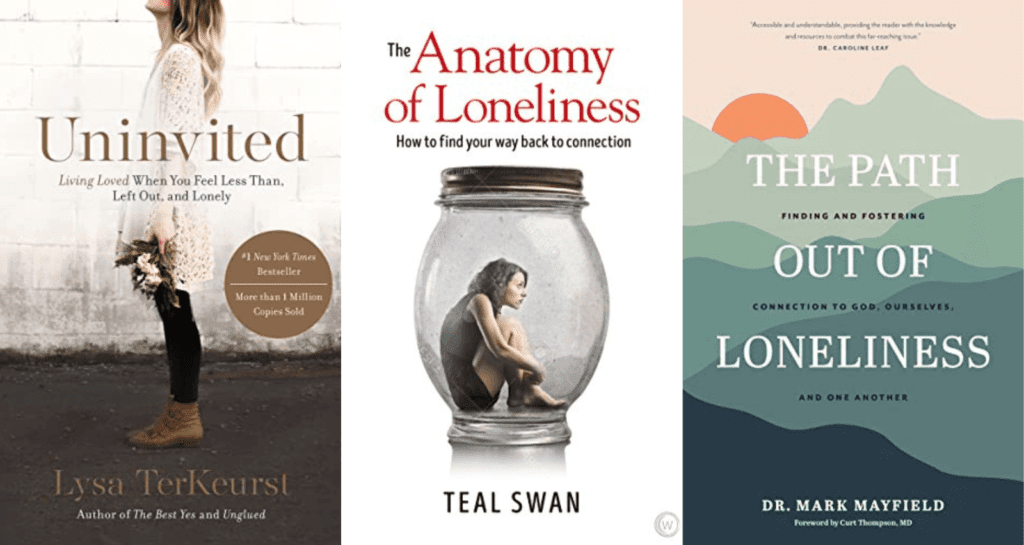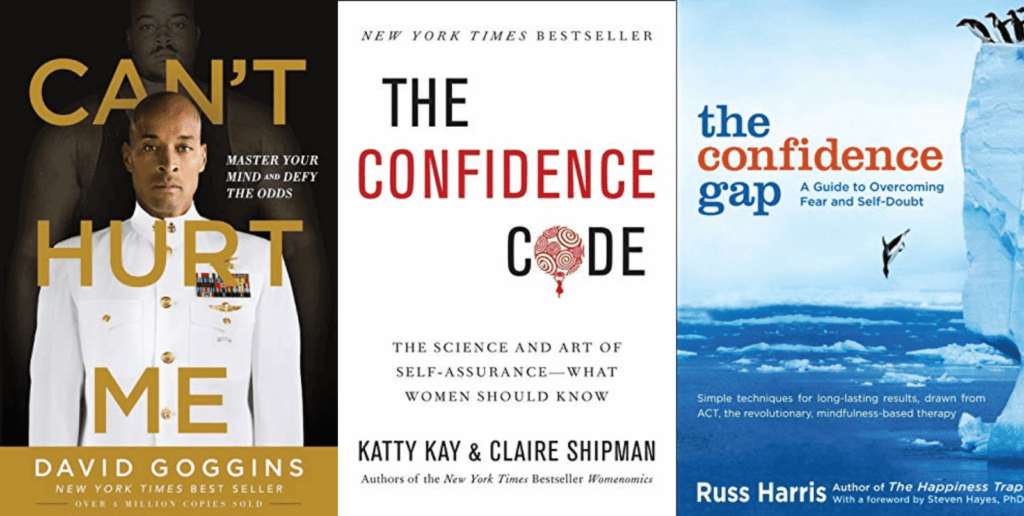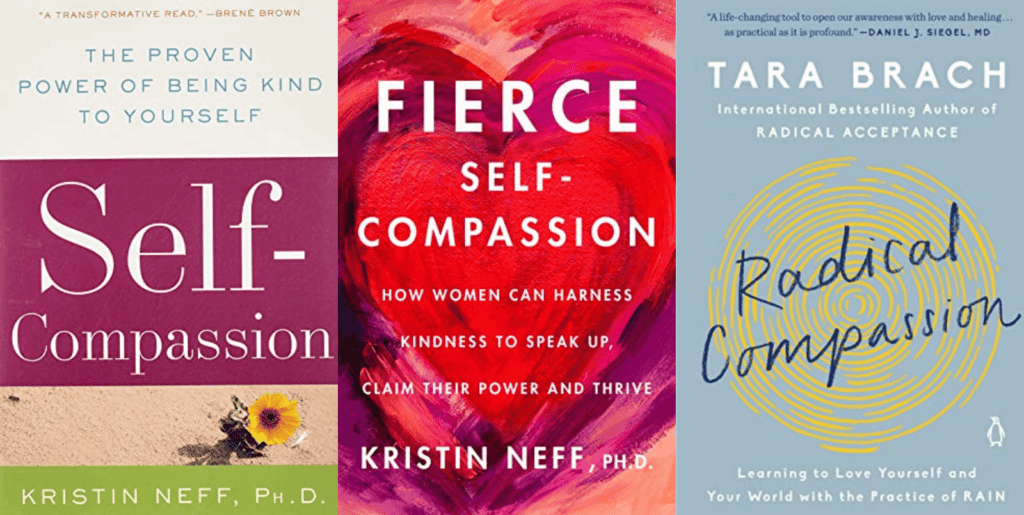The following are some of the best nonfiction books about loneliness.
Disclosure: Some of the links below are affiliate links. This means that, at zero cost to you, I will earn an affiliate commission if you click through the link and finalize a purchase.
Nonfiction Books About Loneliness

1. Uninvited
By Lysa TerKeurst
In Uninvited, Lysa shares her own deeply personal experiences of rejection from the perceived judgment of the perfectly toned woman one elliptical over to the incredibly painful childhood abandonment by her father. She leans in to honestly examine the roots of rejection, as well as rejection’s ability to poison relationships from the inside out, including our relationship with God. With biblical depth, gut honest vulnerability, and refreshing wit, Lysa will help you:
- Stop feeling left out by believing that even when you are overlooked by others you are handpicked by God.
- Change your tendency to either fall apart or control the actions of others by embracing God-honoring ways to process your hurt.
- Know exactly what to pray for the next ten days to steady your soul and restore your confidence in the midst of rejection.
- Overcome the two core fears that feed your insecurities by understanding the secret of belonging.
Related: Am I Lonely Quiz (+ Top 5 Tips To Overcome Loneliness)

2. The Anatomy of Loneliness
By Teal Swan
In The Anatomy of Loneliness, Teal identifies the three pillars or qualities of loneliness: Separation, Shame and Fear and goes on to share her revolutionary technique; The Connection Process, a form of intuitive journeying, usually involving two people a ‘receiver’ and a ‘journeyer’. Through a series of exercises each person experiences ‘walls’ and ‘blockages’ as they move through the process both participants face their fears learning from these to reach a place of unconditional love and acceptance.
Related: Journal Prompts For Depression (+FREE Depression Worksheets PDF)

3. The Path out of Loneliness
By Dr. Mark Mayfield
When you read and apply the practices in The Path out of Loneliness, you’ll develop habits that move you from isolation to connection. You’ll learn the importance of attachment, the art of connection, the power of relationships, the priority of personal responsibility, the gift of vulnerability, and the vision of God, who knew from the beginning that it’s not good for us to be abandoned to ourselves. This book will guide you, the people you love, and the community you live in toward a richer, fuller, healthier life.
Related: Best 15 Inner Child Exercises: How To Connect With Your Inner Child (& Heal Your Childhood Wounds)

4. The Loneliness Companion
By Shrein H. Bahrami
The Loneliness Companion includes:
- Helpful terms―Explore the meaning, causes, and elements of loneliness―as it relates to breakups, being single, and beyond.
- Simple solutions―Powerful tools like meditation and visualization can help you gain confidence and self-esteem.
- Practice makes perfect―Apply new skills to your relationships with others and throughout your life.
Related: Self-Abandonment: What Is It & How To Get Back In Touch With Yourself

5. The Loneliness Cure
By Kory Floyd
Written by communication expert Kory Floyd, PhD, this valuable guide details the causes of affection hunger, helps you assess your needs, and offers six compelling strategies for attracting more intimacy into your relationships and everyday life. This guidebook details the causes of affection hunger, helps you assess your needs, and shows you how to build genuine connections to those around you.
Related: Abandonment Issues Quiz: Do I Have Abandonment Issues?

6. Loneliness: How to be Alone but Not Lonely
By June Hunt
Loneliness: How to Be Alone but Not Lonely will help you discover . . .
- 4 ways to break out of loneliness
- How to take control of your feelings
- 3 ways you can start feeling better right now
- 10 Bible promises that will give you comfort and hope
June Hunt, a Christian counselor who has embraced singleness, knows exactly what you are feeling. “Find out how I handle loneliness so that it becomes the doorway leading to a deep relationship with God. I will show you how to turn loneliness into healthy solitude that will bring you closer to God.”
Related: Best 10 Books On Abandonment

7. Friendship in the Age of Loneliness
By Adam Smiley Poswolsky
In this warm, inspiring guide, Adam “Smiley” Poswolsky proposes a new solution for the mounting pressures of modern life: focus on your friendships. Smiley offers practical habits and playful reminders on how to create meaningful connections, make new friends, and deepen relationships. He’ll help you develop a healthier relationship with technology, but he’ll also encourage you to prioritize real-world experiences, send snail mail, and engage in self-reflective exercises.
Related: Best 99 Coping Skills (+FREE Coping Worksheets)

8. About the Art of Being Alone
By Janett Menzel
This book is dedicated to all those who want to understand their fear of being alone and their loneliness, and transform it into self-love. The author takes the reader along on a journey of discovery: what type of person you are, where the fear and depressive emotions come from, what they want to tell you and how you can overcome them with self-recognition. However, instead of fighting it, she suggests examining it carefully, understanding the emptiness and lessons, and, finally, transforming it. With over 70 strategies and reinventions of your own character and life, this workbook helps readers to expose and decouple old belief systems, recognize dependencies, and resolve blockades.
Nonfiction Workbooks About Loneliness

9. Leaving Loneliness: A Workbook
By David S. Narang Ph.D.
This book focuses squarely on what psychologists call your attachment style, an invisible but pervasive approach to relationships that influences how lonely or socially abundant your life is to become. Your attachment style can leave you nourished with love, isolated and longing, or trapped in stormy and unstable relationships, depending on your particular attachment style.
Related: How To Feel Your Feelings? Top 9 Difficult Emotions To Cope With In Healthy Ways

10. Connecting with Loneliness: A Guided Journal
By Dr. Jessie Everts PhD LMFT
This journal will help you reframe your thoughts from a hopeful point of view, embrace joy and happiness, and open up to new experiences and opportunities with a sense of confidence and curiosity.
- A progressive approach―Organized by topics that build on each other, these encouraging prompts will guide you through the process of dealing with loneliness and building confidence.
- A variety of activities―Discover writing prompts, meditations, and simple challenges to help you get to know yourself and relate to others; some are short and quick, while others inspire deeper reflection.
- Evidence-based techniques―Conquer loneliness with exercises rooted in positive psychology, cognitive behavioral therapy, and mindfulness.
- Quotes and affirmations―Find inspiration in poignant quotes, and give your self-esteem a boost with positive affirmations.

How Nonfiction Books About Loneliness Can Help
Nonfiction books about loneliness can be incredibly helpful in various ways. Here are a few reasons why:
1. Validation and comfort: Loneliness can be a deeply isolating experience, and many people feel like they are the only ones going through it. Nonfiction books on loneliness often share personal stories, experiences, and research that can help readers understand that they are not alone in their feelings. This validation can bring comfort and reassurance, helping individuals feel understood and less isolated.
2. Insight and understanding: These books often provide valuable insights into the causes, effects, and consequences of loneliness. They explore the psychological, sociological, and cultural factors that contribute to loneliness, helping readers gain a deeper understanding of their own experiences and the world around them. By offering this insight, the books can provide a greater sense of clarity and self-awareness.
3. Coping strategies and tools: Nonfiction books about loneliness typically offer practical techniques and strategies for managing and overcoming feelings of loneliness. They may provide advice on building social connections, developing healthy relationships, cultivating self-compassion, improving communication skills, or exploring one’s interests and passions. These tools empower readers with actionable steps to take towards alleviating their loneliness.
4. Empathy and perspective: Reading nonfiction books about loneliness exposes individuals to the perspectives and experiences of others. This can foster empathy and compassion, allowing readers to gain a broader understanding of different types of loneliness and the varied ways people navigate their struggles. By broadening one’s perspective, these books can enhance empathy towards oneself and others, ultimately leading to more meaningful connections.
5. Inspiration and hope: Many nonfiction books on loneliness share inspiring stories of individuals who have successfully navigated their loneliness and found a sense of belonging. These narratives offer hope and encouragement that change is possible and that there is light at the end of the tunnel. Such stories can motivate readers to take positive action, seek support, and work towards building a fulfilling life.
Conclusion
While nonfiction books can be a valuable source of support and guidance, it’s important to also seek professional help or engage in other forms of support if your loneliness persists or becomes overwhelming.



